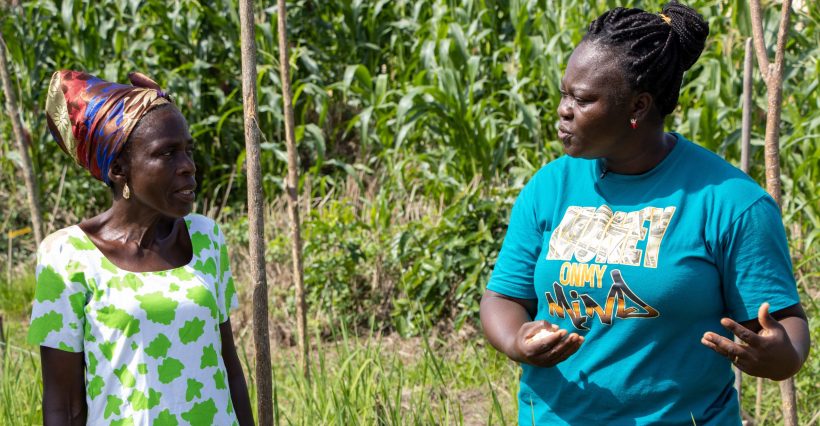
Addressing gender equality and women’s empowerment means addressing the constraining social norms and rigid gender roles that affect women’s participation in agrifood systems.
As the world looks to recover and reimagine agrifood systems, increasing attention is being placed on addressing social barriers and gender-blind policies in these systems.
Reports indicate that agrifood systems employ 66 percent of women in sub-Saharan Africa, and economic growth from agriculture is 11 times more effective at reducing extreme poverty than any other sector. Yet, Women’s roles tend to be marginalized.
Therefore, sustaining a thriving agrifood system will require intentional effort toward women’s empowerment measures from gender-transformative approaches to gender-responsive policies that address the broader socioeconomic context where inequities occur.
This month, we have curated resources that underscore the urgency of putting women at the center of policy reforms to address the transformation of agrifood systems in Africa.
This report by the Malabo Montpellier Panel discusses gender inequalities. It emphasizes the importance of women’s participation in all aspects of agrifood systems while providing actionable recommendations to enhance their role and impact. The report also highlights successful policy innovations that can be upscaled to drive positive change.
This article asserts that enhancing women’s access to resources, education, and decision-making positions is vital for equitable agrifood systems. It underscores women’s indispensable roles in agriculture, from farming to market.
This journal proposes five pathways, from reforming land use policies to investing in research, technology, and innovation, to help shape and transform Africa’s food systems. It draws on ideas discussed at the 2023 Adaptation Futures in Montreal, Canada.
Agricultural communities face a range of shocks from natural disasters, political conflicts, and health crises. Women are often more vulnerable to such shocks given their unique constraints, like access to information, household decision-making power, and asset control. The essay highlights the need to provide women with equal access to information and technology to boost resilient agrifood systems.
Despite global efforts, the world is not on track to achieve gender equality by 2030. This article discusses the underlying causes of gender inequality and women’s empowerment in food systems, closing the current gender resource gaps, and why integrating gender in food systems policies is critical to providing the legal framework for driving action.
Creating gender-responsive opportunities for women’s entrepreneurship in agribusiness can empower them and advance gender equality and food security. This paper explores the existing gaps and maps out the potential of gender-responsive agribusiness interventions to create meaningful engagement for women agripreneurs.
Poorly designed interventions can increase women’s decision-making marginalization and workload. This report outlines existing policy tools to support program design and prioritize food security and women smallholder’s development and resilience.
The news article calls for concerted efforts to address gender disparities in agri-food systems, citing gender-responsive policies as crucial tools for closing gender gaps in agriculture and advancing equity.
The blog takes a fresh perspective into the persistent gender disparities in agriculture’s “new normal” and the opportunities available for policymakers looking to disrupt the status quo to create more resilient food systems for the benefit of all.
This paper highlights the challenges that hinder funding and implementing stakeholders from effectively delivering gender-responsive programs. It also suggests recommendations to enhance the gender responsiveness of funding decisions, suggesting strategies to influence and improve the incorporation of gender considerations in climate-related projects.
